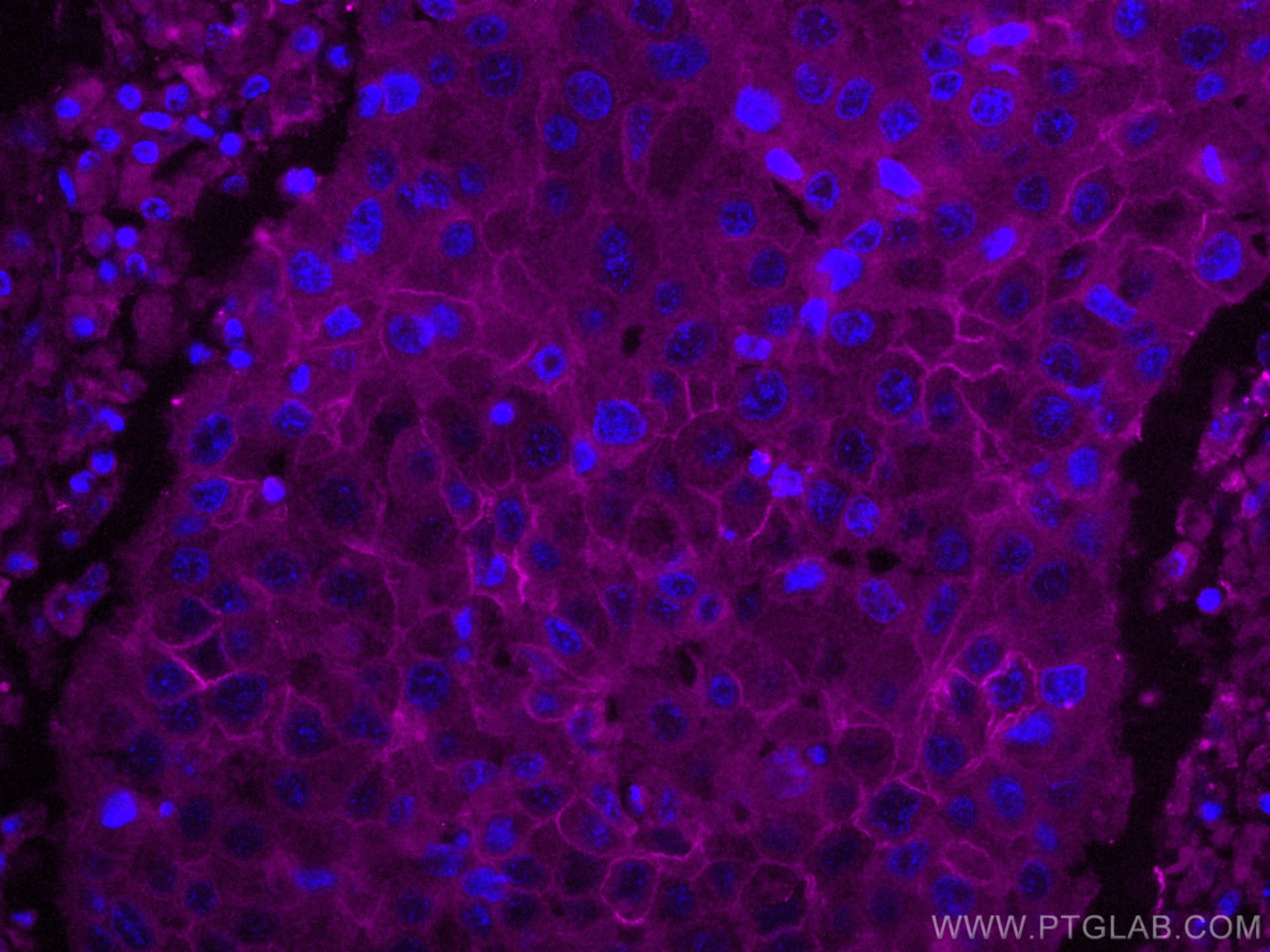验证数据展示
经过测试的应用
| Positive IF-P detected in | human breast cancer tissue |
推荐稀释比
| 应用 | 推荐稀释比 |
|---|---|
| Immunofluorescence (IF)-P | IF-P : 1:50-1:500 |
| It is recommended that this reagent should be titrated in each testing system to obtain optimal results. | |
| Sample-dependent, Check data in validation data gallery. | |
产品信息
CL647-67768 targets ALCAM in IF-P applications and shows reactivity with Human samples.
| 经测试应用 | IF-P Application Description |
| 经测试反应性 | Human |
| 免疫原 | ALCAM fusion protein Ag16892 种属同源性预测 |
| 宿主/亚型 | Mouse / IgG1 |
| 抗体类别 | Monoclonal |
| 产品类型 | Antibody |
| 全称 | activated leukocyte cell adhesion molecule |
| 别名 | ALCAM, CD166, CD166 antigen, FLJ38514, MEMD |
| 计算分子量 | 583 aa, 65 kDa |
| 观测分子量 | 90-100 kDa |
| GenBank蛋白编号 | BC137097 |
| 基因名称 | ALCAM |
| Gene ID (NCBI) | 214 |
| RRID | AB_2920309 |
| 偶联类型 | CoraLite® Plus 647 Fluorescent Dye |
| 最大激发/发射波长 | 654 nm / 674 nm |
| 形式 | Liquid |
| 纯化方式 | Protein G purification |
| UNIPROT ID | Q13740 |
| 储存缓冲液 | PBS with 50% glycerol, 0.05% Proclin300, 0.5% BSA, pH 7.3. |
| 储存条件 | Store at -20°C. Avoid exposure to light. Stable for one year after shipment. Aliquoting is unnecessary for -20oC storage. |
背景介绍
Activated leukocyte cell adhesion molecule (ALCAM, also known as CD166) is a cell adhesion molecule that belongs to the immunoglobulin superfamily. It is involved in cell-cell adhesion through homophilic and heterophilic (to CD6) interactions. ALCAM is widely expressed in a variety of normal tissues. Altered ALCAM expression has been associated with the differentiation state and progression in some neoplasms including melanoma, prostate, colorectal, and breast cancers (PMID: 20461761; 18172759).
实验方案
| Product Specific Protocols | |
|---|---|
| IF protocol for CL Plus 647 ALCAM antibody CL647-67768 | Download protocol |
| Standard Protocols | |
|---|---|
| Click here to view our Standard Protocols |
